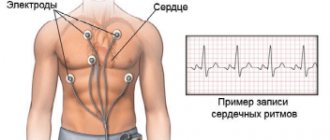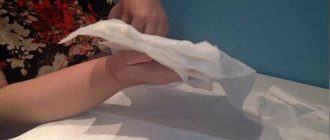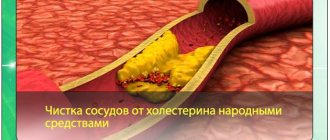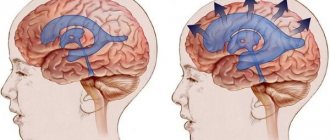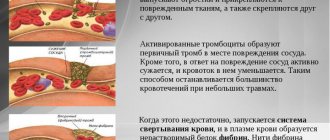Sinus bradycardia - a decrease in heart rate to 60 beats per minute. This condition is not a pathology. It can be either a variant of the norm or a sign of a serious illness. Bradycardia is often observed in professional athletes. With regular exercise, the heart pumps blood more actively and provides the necessary blood flow through fewer contractions. In swimmers, skiers and track and field athletes, the resting heart rate can reach 30 beats per minute. In this case, this is not considered a deviation. However, if the heart rate is less than normal and other disturbing symptoms are observed, there is a reason to seek advice from a cardiologist.
Symptoms of bradycardia
- dizziness. When the heart rate decreases, systemic blood flow worsens and blood pressure decreases. As a result, the tissues of the body and, above all, the brain, are less well supplied with oxygen. Problems in brain function provoke attacks of dizziness.
- fainting, and in some cases loss of consciousness. The nature of fainting is similar to the causes of dizziness, when the body begins to react acutely to a lack of oxygen.
- dyspnea. Impaired respiratory function appears during physical activity, since with bradycardia, blood circulation slows down and blood stagnation forms in the lungs.
- weakness, increased fatigue, feeling of drowsiness. When, during an attack of bradycardia, the required amount of oxygen does not reach the muscles, they are not able to work as usual and with the necessary strength, which is why weakness, fatigue and other general ailments occur.
- pale skin. Occurs due to low blood pressure.
- there is no significant increase in heart rate during exercise. An increase in heart rate is a normal response of the body during physical activity, even in trained athletes. Failure to adequately increase your heart rate is a symptom of certain heart diseases.
- pain in the chest area . This is a symptom of a serious disorder in the functioning of the cardiovascular system. Appears during periods of exercise or when the heart rate drops below 40 beats per minute, when bradycardia is accompanied by a brief attack of deterioration in the blood supply to the heart muscle (angina pectoris). The heart muscle suffers from a lack of oxygen and pain occurs in the chest.
The symptoms listed above may occur to varying degrees. In any case, it is better not to ignore such conditions. This is a reason to consult a doctor who will collect anamnesis, prescribe an examination and, after establishing a diagnosis, determine treatment tactics.
Recipes using healing natural ingredients
- Pour 20 grams of dried yarrow with 200 milliliters of boiling water, put on low heat and boil for 10–15 minutes.
The decoction must sit for at least 1 hour, after which treatment can begin. Drink this decoction 1 tablespoon 3 times throughout the day, regardless of meals.
This decoction is easy to prepare at home and, just as important, allows you to quickly normalize your heart rhythm. However, there are no time restrictions for treatment with yarrow decoction.
- Pour 15–20 grams of crushed dry hawthorn berries into 100 milliliters of pure alcohol. The tincture should be prepared in a glass container with a tight lid. After pouring, let it sit for at least 10 days. Take 10 drops of hawthorn tincture 3 times throughout the day, and the drops must be diluted in 1 tablespoon of water. A course course is recommended, with mandatory breaks.
Treatment with hawthorn tincture can be combined with treatment with valerian, mixing the tinctures in equal parts. Thus, a remedy is obtained that effectively eliminates bradycardia, has a pronounced calming effect, and normalizes sleep.
Pour 10–15 grams of dry motherwort herb into 200–250 milliliters of boiling water and leave for 1.5–2 hours. Take the infusion 1 tablespoon 3 times throughout the day.
As you can see, the recipe is extremely simple to make at home. It should be noted that motherwort infusion is especially effective when cardiac dysfunction is associated with stress and neurotic conditions. There are no time restrictions for treatment with this infusion.
- If you can collect fresh motherwort, this is a great opportunity to use the juice from the fresh herb. The recipe is also quite simple: you need to thoroughly rinse the collected herbs and squeeze the juice out of it. This remedy should be taken 30 drops diluted in 1 tablespoon of water 3 times throughout the day. Treatment must be carried out in courses, with mandatory breaks.
500 grams of walnuts must be finely chopped, mixed with 300 grams of sugar and 300 milliliters of sesame oil. In a separate container you need to cut 3 lemons (along with the peel) and pour boiling water over them. Next, thoroughly mix the nut mixture and lemons. Use 1 tablespoon of the prepared mixture before each meal.
Walnuts are universal folk remedies that help treat a huge number of diseases. This mixture can be used indefinitely. Even when the symptoms of the disease are eliminated, further intake of the nut composition will have a beneficial effect on the entire body, strengthen the immune system and act as a preventive measure for many diseases.
10 heads of garlic must be chopped to a paste-like consistency. In a separate container, pour boiling water over 10 lemons (for 1 minute), and then squeeze the juice from each lemon. Place the garlic pulp and lemon juice in a 3-liter glass container, then pour 1 liter of honey over them. The composition must be infused for at least 10 days, in a cool and dark place.
Take in the morning on an empty stomach, and shake the composition before each use. Quantitatively, the mixture is designed for 3 months and this is exactly how much the full course of treatment is. A repeat course can be carried out after a year.
Boil 500 milliliters of red wine (the best option is to use Cahors) for 10 minutes over low heat and then add 50 grams of crushed dill seeds. Next, you need to boil the composition for another 10 minutes, then leave to infuse until it cools completely.
It is recommended to store this mixture in the refrigerator in a glass container. It is better to take warm liquid, 1 tablespoon 3 times a day, preferably after meals.
Treatment using red wine and dill seeds effectively eliminates the symptoms of heart rhythm disorders, and is also a preventive measure against the development of atherosclerosis. But such treatment can only be taken in courses of up to 2 weeks with mandatory breaks of a minimum period of 3 weeks.
As you can see, all the recipes are quite simple to follow at home. Moreover, their effectiveness has been tested by more than one generation of our ancestors, who treated heart rhythm disorders using traditional methods.
Causes of bradycardia
There are two groups of reasons: factors not related to heart disease (extracardiac) and factors directly related to pathologies of the cardiovascular system (cardiac).
Extracardiac factors
- persistent lack of thyroid hormones (hypothyroidism);
- stomach and duodenal ulcers;
- cerebral hemorrhage;
- head injuries (bruises and swelling);
- rheumatic fever and other systemic connective tissue diseases;
- toxoplasmosis, diphtheria and other infectious diseases;
- prolonged abstinence from food;
- neurocircular dystonia;
- neuroses accompanied by autonomic dysfunction;
- general hypothermia;
- lead poisoning, nicotine;
- reduced body temperature.
Cardiac causes
- myocarditis (inflammation of the myocardium);
- congenital anomalies of the cardiac conduction system;
- cardiosclerosis;
- myocardial dystrophy;
- IBS.
Separately, bradycardia caused by taking medications is distinguished:
- beta blockers;
- cardiac glycosides;
- antiarrhythmic drugs;
- ivabradine.
Conduction system of the heart
To better understand why the heart beats too rarely, it is necessary to know the basic structure of the conduction system of the heart.
The myocardium, or heart muscle, contracts under the influence of exciting electrical impulses. They are formed in the sinus node, a collection of special cells in the area of the right atrium. This is the pacemaker of the first order. When the formation of signals slows down, sinus bradycardia occurs.
Once formed in the sinus node, the electrical signal travels along the conduction pathways of the atria. When this process is disrupted, sinoatrial blockades of varying degrees occur. Bradycardia is caused only by complete sinoatrial block, when the impulse formed in the sinus node cannot pass through the atria and cause excitation of the heart muscle. In this case, there are practically no contractions of both the atria and ventricles.
- 11 causes of bradycardia or how to avoid being at risk
Under these conditions, the atrioventricular node, another cluster of cells located between the atria and ventricles, takes over the function of the source of electrical signals. Therefore, it is called a second-order pacemaker. Impulses in it are formed at a lower frequency than in the sinus node, about 40 - 60 per minute. In this case, the ventricles contract more slowly, and bradycardia occurs due to the presence of a rhythm from the atrioventricular junction.
In the atrioventricular node itself, a disturbance in the passage of the electrical signal can also occur - atrioventricular block. In this case, the atria contract in a normal rhythm emanating from the sinus node (more than 60 per minute), but excitatory signals to the ventricles either pass with a delay, or some of them cannot be carried out, or complete atrioventricular block occurs, when the ventricles do not receive electrical energy at all. stimulation and cannot contract.
At the same time, the third-order pacemaker begins to function - these are cells located in different parts of the conduction system of the ventricles. The impulses in them are generated only at a frequency of 25 - 40 per minute, so a severe degree of bradycardia occurs.
Treatment of bradycardia
The selection of therapy depends on the reasons that led to this condition. If bradycardia occurs while taking medications, the doctor will recommend stopping or replacing medications that reduce heart rate.
If the cause relates to extracardiac factors, the cardiologist may schedule a consultation with a related specialist who is responsible for the treatment of the pathology that caused the bradycardia.
In some cases, for strict medical reasons, a surgical operation is prescribed, during which a pacemaker is installed.
Drug therapy
Medicines are used for bradycardia, which is combined with cardiac pathologies and manifests itself with severe symptoms. In the early stages, the following drugs are relevant:
- "Myofedrin" is created on the basis of oxyphedrine. It improves hemodynamics and increases heart rate by acting on beta-adrenergic receptors. It is recommended to use the drug only under the supervision of a specialist, since with long-term use it often provokes arterial hypertension, tachycardia and angina.
- Zelenin drops have an M-anticholinergic, antispasmodic, sedative and cardiotonic effect due to the presence of menthol, belladonna, valerian and lily of the valley. They are used for high excitability, vegetative-vascular dystonia and cardioneuroses, which are manifested by paroxysms of bradycardia. It is not recommended to use the product for inflammatory heart diseases, ulcers and glaucoma. If the dosage is chosen incorrectly or contraindications are not taken into account, headache, nausea and other types of arrhythmia may occur.
In more advanced cases, the cardiologist will recommend drugs with intense effects. You can familiarize yourself with them by looking at the list below:
- "Atropine Sulfate" is used to relieve arrhythmia, which manifests itself due to an increase in the tone of the vagus nerve, since it is able to block M-cholinergic receptors. The composition of the drug is natural. It contains an alkaloid extracted from various types of dope. Atropine is often prescribed to treat drug-induced bradycardia caused by beta blockers and calcium antagonists. Its dosage should be selected with caution, as side effects may occur. Among them, dizziness, impaired accommodation, dry mouth and tachycardia are noticeable. It is not recommended to use the drug for glaucoma, keratoconus, and children under 7 years of age.
- "Ephedrine Hydrochloride" is used for failures in atrioventricular conduction. It is a kind of analogue of adrenaline, but, unlike it, it is better tolerated. The drug has a vasoconstrictor effect, which increases blood pressure and accelerates the heartbeat. Ephedrine Hydrochloride is contraindicated for hyperthyroidism (high production of thyroid hormones), advanced atherosclerosis and heart disease.
- "Isadrin" represents a group of catecholamines. It stimulates beta-adrenergic receptors, thereby increasing the excitability and contractile function of the myocardium. The drug is recommended for cardiogenic shock, to eliminate atrioventricular block and prevent the manifestation of Morgagni-Adams-Stokes syndrome. Among its side effects are nausea, tremor, attacks of tachycardia, dry mouth and the occurrence of extrasystole. Isadrin is contraindicated in the acute phase of myocardial infarction, with angina pectoris, advanced atherosclerosis and in the 1st trimester of pregnancy.
- Ipratropium Bromide is an M-anticholinergic blocker with bronchodilator effects. Unlike Atropine, it does not affect the central nervous system. The drug is prescribed for bradycardia in combination with heart block. It should be taken with caution, as sometimes ophthalmotonus increases, appetite is lost, disruptions occur in the gastrointestinal tract and other types of arrhythmia occur. It is better not to use Ipratropium Bromide for glaucoma, rapid heart rate, pregnancy and megacolonoma (colon defect).
- Orceprinaline Sulfate is most often prescribed for impaired atrioventricular conduction. It is an analogue of Izadrina, but is much better tolerated. It is not recommended to use the medication only for systemic atherosclerosis.
Such drugs with antiarrhythmic properties should be prescribed by the attending physician. They have a pronounced effect on the heart muscle and, if used incorrectly, there is a high probability of adverse reactions. The dosage must be selected based on the degree of bradycardia and the presence of other pathological processes.
Prevention
First of all, you need to be regularly monitored by a cardiologist in order to recognize the pathology in time. In addition, preventive measures include:
- control blood pressure and bring it to normal;
- maintaining adequate weight;
- regular physical activity appropriate for age;
- diet;
- choosing foods high in vitamins and minerals that are good for the heart;
- limiting smoking and alcohol;
- if possible, minimizing stressful situations;
- good sleep, rest and relaxation.
Bradycardia is a symptom that may indicate the presence of serious diseases. Under no circumstances should it be ignored. A timely visit to the doctor will help to avoid complications and begin appropriate treatment in time if necessary.
FIND OUT PRICES
Decreased rhythm due to blockades
Speaking about what bradycardia is, the following should be noted: it can also be caused by heart block (impulse transmission to various parts of the organ is disrupted). However, it can be sinoauricular. There is a disturbance in the transmission of impulses through the atria when currents are transmitted from the sinus node to the myocardium every other time. It may also be atrioventricular. In this case, a violation of impulse transmission occurs through the ventricles? and some of their contractions simply fall out of the heart rhythm. The development of such blockades is divided into three degrees. With the first, there is a slight decrease in the speed of impulse transmission to the ventricles, with the second, not all of them reach, and with the third, there is a decrease in the number of contractions caused by blockade of the conduction system.

